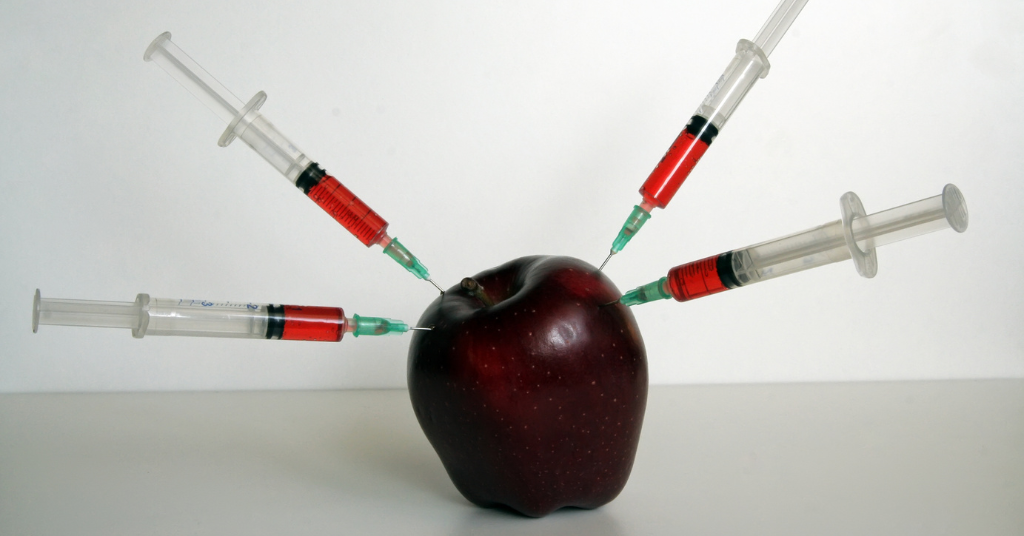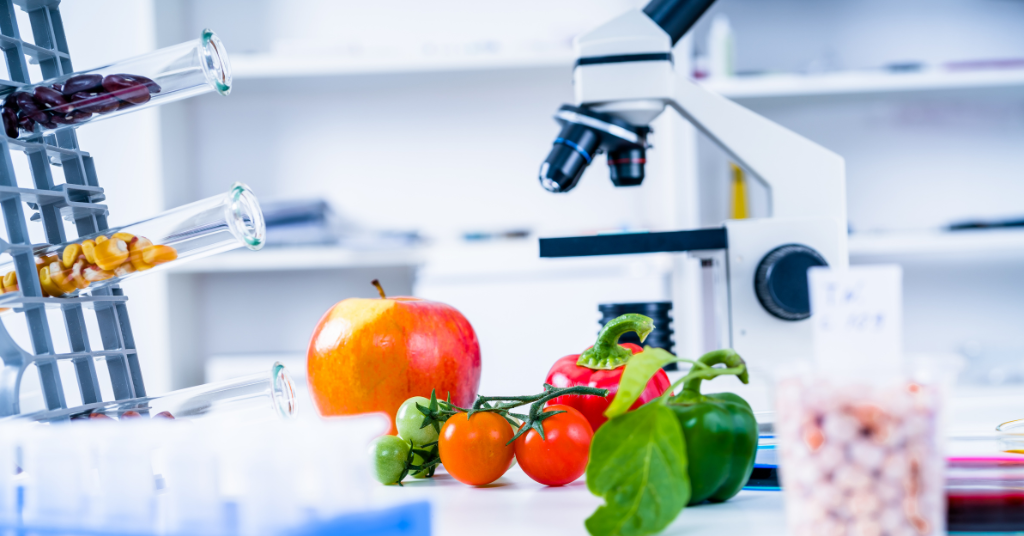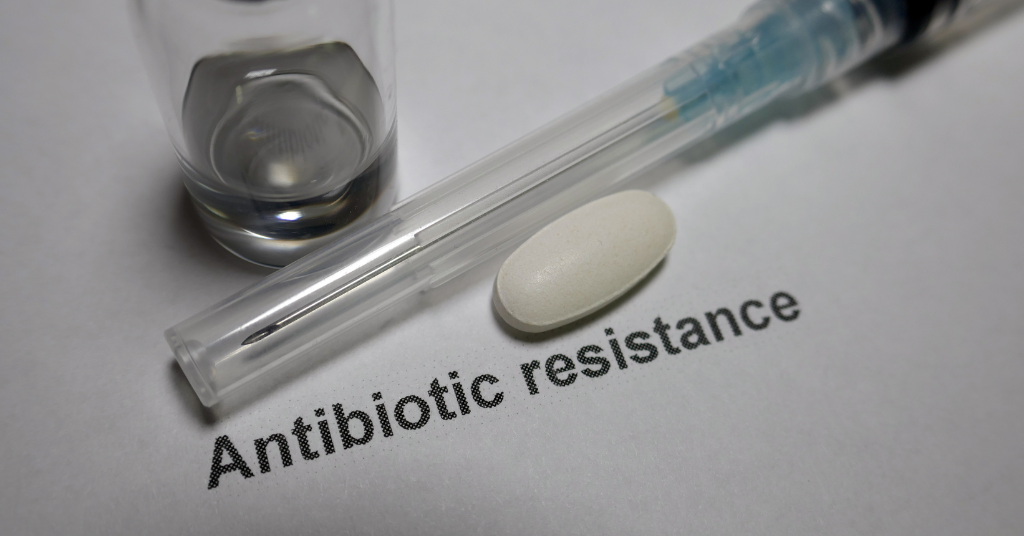In our day-to-day life, we eat a lot of veggies and fruits. Sometimes due to force of habit or other times due to health concerns. Nevertheless, we consume them and try to make our family members eat them too, to become strong physically and mentally. In between becoming health conscious or adopting healthy eating habits, we consume genetically modified foods too. In one way or another, it takes a toll on our health. This article busting some long-term side effects of genetically modified foods consumption.

What are Genetically Modified Foods?
Before indulging in more complex information, let’s clear the basic concept. Genetic modification is a unique set of gene technology that changes the genetic machinery of some living organisms, such as animals, plants, or microorganisms. The process of combining genes from different organisms is called Recombinant DNA Technology, and the result we get from the aforementioned organism combination is “Genetically Modified” or “Transgenic” or “Genetically Engineered” products.
There is no denying that the world is battling to reduce the problem of hunger and generate more & better ideas to increase food production. That’s how people are driving their forces toward technological advancement to solve the interminable problem. And come into existence the much-needed, genetically modified technology. Recombinant DNA technology or genetic engineering works wonders. Since its inception, people have seen it as a tool to enhance their food quality and increase their crop creation of food & agriculture.
Related Article: 8 Easiest Home Remedies For Sore Throat During Monsoon
What Does It Mean Being Genetically Modified?

Genetically Modified refers to a situation or an act when a “gene of interest” is extracted from one organism and put into the chosen organisms’ genes. Let’s take an example here when researchers are in the process of making a particular organism produce a nutrient (which can be any nutrient), which initially is incapable of naturally producing it. So, in such cases, they will look after those organisms qualified to create that particular nutrient.
Another point to be noted here, the “gene of interest” can come from insects, animals, and bacteria containing specific needed traits. Therefore, GM or genetically modified organisms are often known as “transgenic” because these organisms involve the transfer of genes. The primary intention of genetically modified food products is to increase pest resistance and yield production. Though many genetically modified foods are approved and safe, their production is still contentious. No matter how wonderful it appears, it has several side effects.
The Side Effects Of Genetically Modified Foods
Now, come to the main part, the side effects of genetically modified food. Although we have seen how great this technology is and how it is helping in fighting the battle of the world’s hunger. But it has its limit. With its growing popularity and availability in the market, people often ask, “can genetically modified food make you sick?’ or “can GMOs harm your body?” With the kind of amalgamation in the gene, the question is valid on varied scales.
Following are some of the side effects caused by consuming genetically modified food:
1) Allergic reaction

One of the most common side effects in humans from consuming genetically modified foods is an allergic reaction. Such a reaction triggers when an allergen/protein already available in the genetically modified crop enters the body and provokes an immune response. As mentioned previously, GM foods are produced by inserting another gene into an organism to turn it into something new.
The whole process, although seem appealing, has negative effects on humans. These genes may bring distinct allergens that can initiate an immune response in a body. Not only that but since some (inserted) genes come from different bacteria or viruses, their possibility of transferring disease is also feared by many.
2) Production of toxins

Genetically modified food tends to harm the human body due to its increment in toxins production. The side effects may happen due to the result of toxins production while there is damage in the “gene of interest” during the process of insertion.
Also, when the inserted gene does not accept the recipient organism properly due to interference with its metabolic pathways, it affects the body adversely in such situations. And when someone eats such foods which have toxins in them, the possibility of consuming those toxins and getting harmed by them increases manifold.
3) Reduction In Nutritional Value

Many genetically modified foods do not consist of any nutritional value. The fact that genetic engineering mainly focuses on lengthening the lifespan of food, increasing production, and preventing it from pests sometimes overlook the nutritional value of some crops.
A study conducted by the journal Food Chemistry says that organic soybeans have higher nutritional components compared to genetically modified soybeans. Organic soybeans contain healthy sugar, selenium, proteins, and zinc, whereas GM food has a lower quality. Genetically modified food focuses more on quantity rather than on quality retention.
4) Antibiotic Resistance

Another side effect of consuming genetically modified food is it can make disease-causing bacteria immune to antibiotics. The whole process results in substantial growth in the spread of diseases and infections in humans.
Let’s take an example of a situation here, Novartis’ genetically engineered maize plant contains an ampicillin-resistance gene. Though ampicillin is a valuable antibiotic used to treat infections, several European countries refused to permit GM food produced using this. The reason is that the regular consumption of such crops can lead to bacterial infections since the human body at one point becomes unable to fight those infections.
Take Away
Though genetically modified food may have negative impacts on the human body. Technology is still evolving, and the chances of modification in production techniques in the future might turn those negative effects into positive ones. Besides, every food in the world carries its version of health risks and benefits.
Regarding the type of food we consume daily, we cannot deny the health menaces we are getting ourselves into. Though it is nearly impossible to stop the intake of genetically modified food because it is everywhere on the market. But we can lessen their intake as much as possible, grow our plants or buy organic products that can help our immune systems.
If you are thinking about how you can prevent your family or kids from consuming genetically modified food, then worry not. Visit Piggy Ride. The website offers an extensive list of solutions and guidance to parents to help them better the upbringing of their kids and improve academic accomplishment in the process. Not only that, the platform offers numerous extracurricular activities, academic lessons, workshops, quizzes, and tournaments to help your kids grow mentally and physically.


Leave a Reply